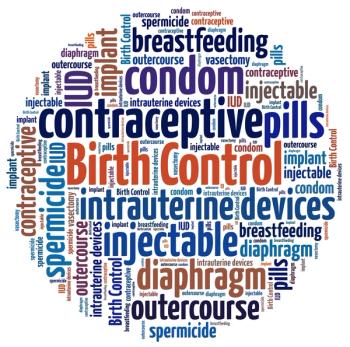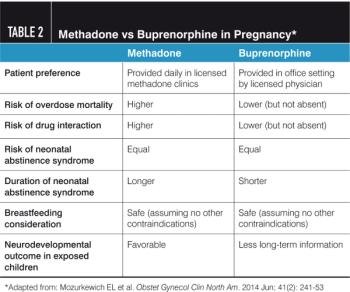
According to recent findings, a self-administered contraception could lead to improved contraceptive continuation rates and equivalent pregnancy prevention compared to provider administration.

According to recent findings, a self-administered contraception could lead to improved contraceptive continuation rates and equivalent pregnancy prevention compared to provider administration.

A review of more than 100 trials compared the effectiveness and safety of levonorgestrel, mifepristone, and the Yuzpe regimen for emergency contraception.

Chronic pain appears to play a major role in the relationship between endometriosis and depression, according to a recent meta-analysis.

New research compared the effectiveness of MRI and TVS for detecting rectosigmoid endometriosis.

Ranging from the impact diet supplements have on heart health to whether cannabis use impacts a woman's risk for PTB, these are five of the most noteworthy studies published in July 2019.

In a new study, researchers examined whether diabetes confers to women an excess risk of heart failure.

A systematic review and meta-analysis by UK authors sheds new light on social outcomes in adults who were born preterm or at LBW.

These 11 statements to guide decision-making with patients can help patients fully consider their values and preferences in regard to prenatal testing.

A recent study aimed to determine the prevalence of SI and the associated risk factors during pregnancy among a sample of women enrolled in WIC.

New research compared the quality of sleep between women with POI and women of the same age with still functioning ovaries.

Menstrual cups are used around the world but quality studies on them are lacking, according to results of a new systematic review and meta-analysis.

This flowchart can help ensure a smooth procedure by helping the ob/gyn recognize potential challenges.

Both treatmetn methods require careful considerations when determining how to care for pregnant patients with OUD.

Although there are numerous benefits to telehealth, there are also many things to consider when beginning or expanding a telehealth program or clinic, including for obstetrics and/or gynecology.

Emergent treatment of severe acute-onset persistent hypertension constitutes an important component of high-quality obstetric care.

A new study examines whether reproductive hormones influence immune response to influenza vaccination.

Even after diagnosis, female patients with bladder cancer continue to suffer worse outcomes than males following definitive treatment.

Environmental health occupies a unique place in perinatal and reproductive health counseling

To improve health outcomes, today’s physicians must be able to communicate effectively with their patients. One approach many experts encourage physicians to use is motivational interviewing (MI), a series of techniques to get at the root of patient concerns and help encourage them to make healthy behavior changes.

A new analysis tested the hypothesis that maternal anthropometric characteristics were associated with increased risk of subsequent childhood cancer development.

Insulin or an oral antihyperglycemic agent? Get the expert information you need to make the correct call.

When selecting candidates for office hysteroscopy, individual patient self-assessment of pain tolerance and anxiety can help determine who would benefit most from an office-based procedure

For ob/gyns who are seeking concrete steps to incorporate the newest evidence into practice, refer to these easy steps.

As more patients turn to ob/gyns for wellness exams, physicians need to stay up-to-date on current recommendations.

New research examines whether postpartum echocardiography could play a role in CVD detection for women with a history of preeclampsia.

A recent model challenges the rationale of limiting oral contraceptive dispensing as a means to control costs.

Most vitamins and supplements do very little towards improving heart health, but a recent report identified two supplements and one dietary measure that may be beneficial.

Although breastfeeding has long been hypothesized to worsen postpartum cardiomyopathy, a new prospective study challenges the connection.

Ob/gyns must be aware of the different treatment recommendations for various scenarios pre- and post-delivery.

The USPSTF recommends diabetes screening as part of a cardiovascular risk assessment in asymptomatic adults who are overweight or obese and aged between 40 and 70.